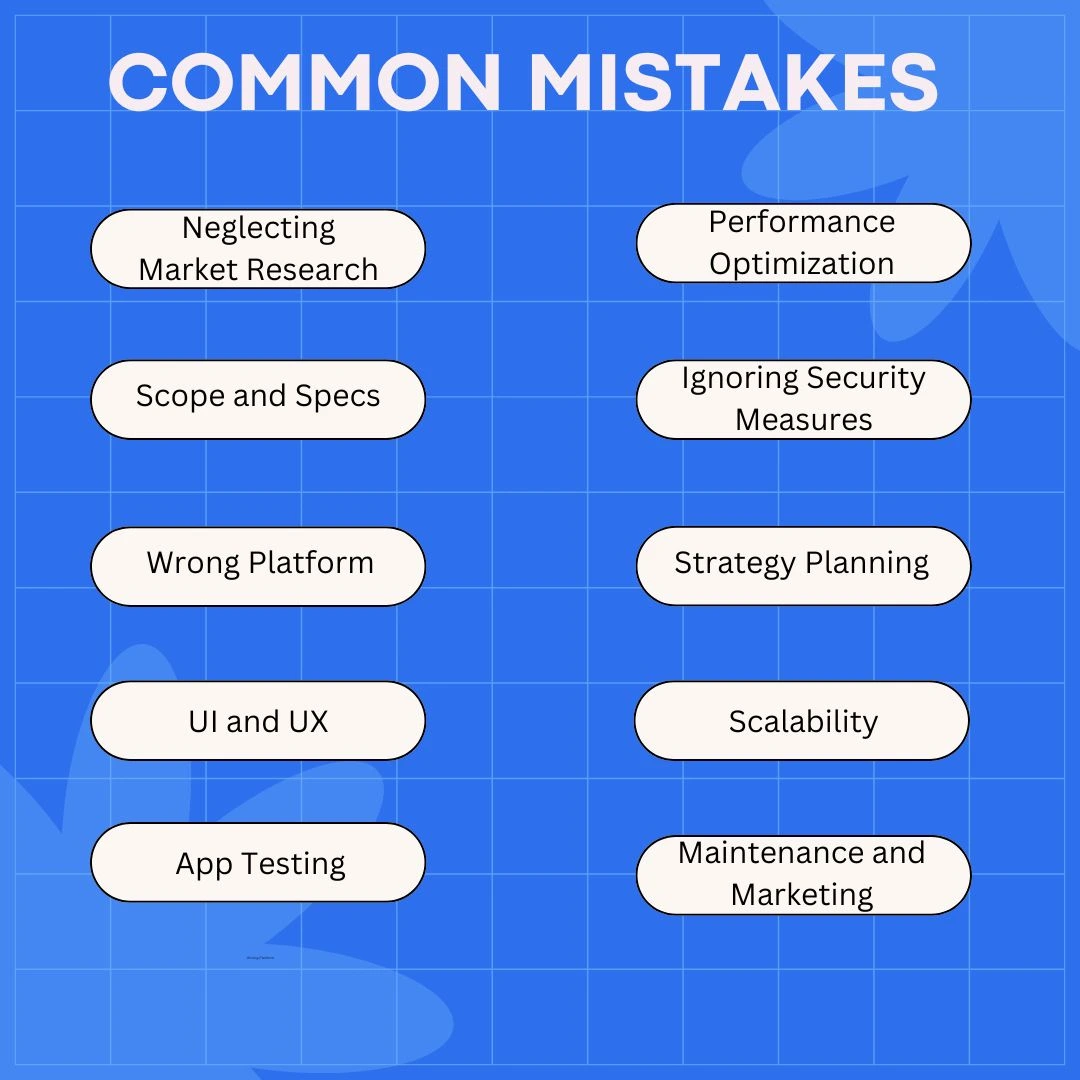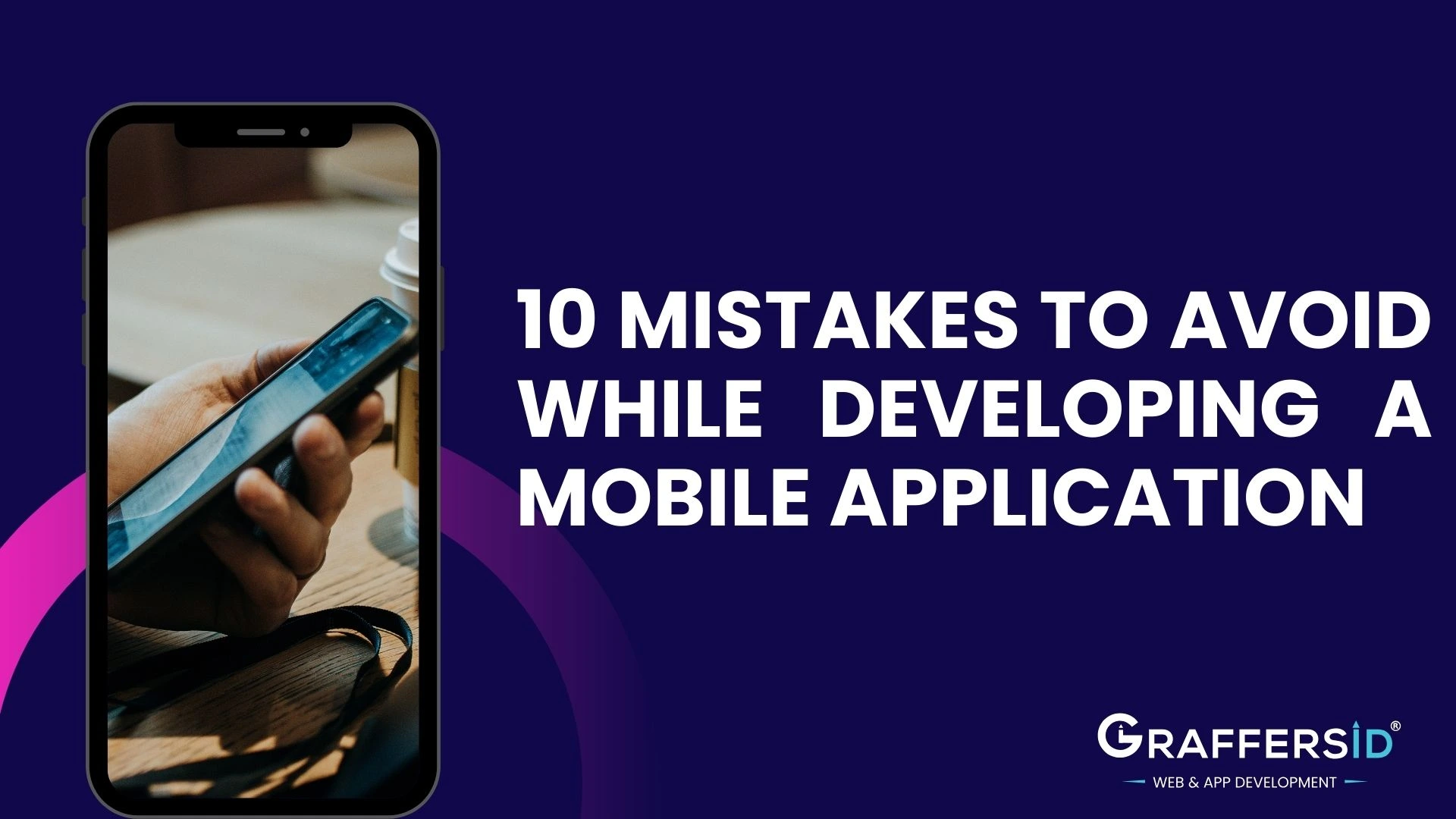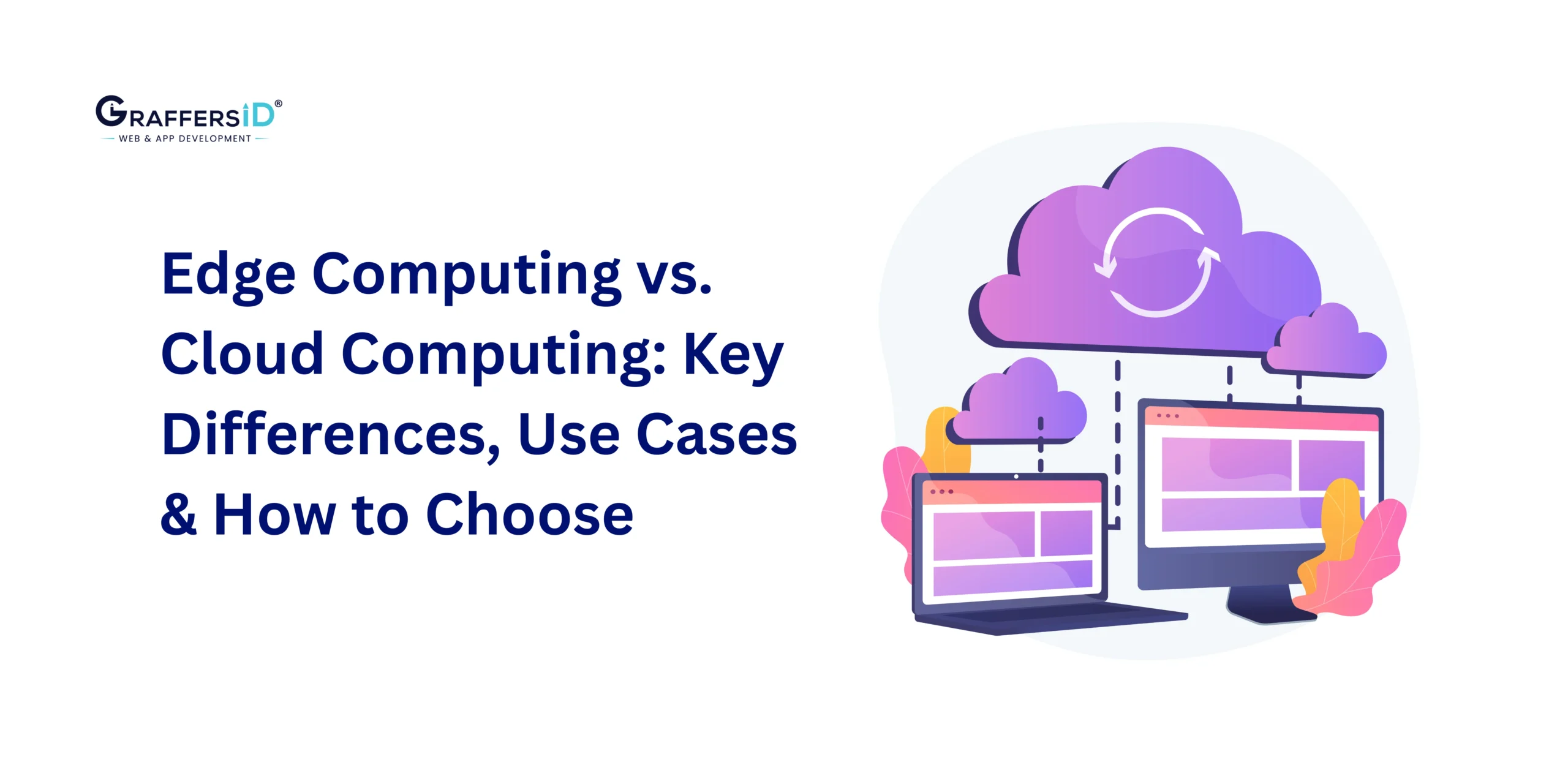Mobile application development is a journey filled with possibilities, innovation, and obstacles through which one has to pass. Indeed, the right application can do wonders for a person or business. However, the process of creating an application has to be paramount. Here are some mistakes usually made during development that can compromise the success of your app:

Neglecting Market Research
One of the common mistakes made by developers is that they do not conduct thorough market research. But, if you want your app to be a success, you have to know your exact target audience, because one could easily develop an application that is of no relevance to their target market, or fail to stand out from competition. Make sure you clearly define your target market, and then analyze similar apps within the market to comprehend their gaps and leverage your opportunities.
Failing to Come Up with Scope and Specs
An app without proper specification or goal will definitely steer into trouble from scope creep and delay. Before engaging into development, have a proper articulation of your app’s purpose, important features, and a roadmap. Do not add unnecessary features, which can ultimately confuse your users and slow down the performance.
Choosing the Wrong Platform
Selecting the wrong platform can limit your app’s reach and usability. For example, developing an iOS-only app when your audience is predominantly Android users can reduce the apps effectiveness. Conduct research to determine whether your audience prefers iOS, Android, or both, and decide between native, hybrid, or cross-platform development based on your budget and requirements.
Ignoring User Experience (UX) and Interface Design (UI)
A poorly designed user interface or complicated user experience can drive users away. Cluttered layouts, confusing navigation, or slow loading times can make users uninstall your app. Invest time in creating a seamless, intuitive design with clear call-to-action buttons and a user-friendly layout. Test designs with real users to gather feedback before finalizing.
Underestimating the Importance of App Testing
Launching an app without thorough testing can result in bugs, crashes, and a poor user experience. Skipping or rushing the testing phase can damage your app’s reputation and lead to negative reviews. Conduct rigorous testing, including usability testing, performance testing, and security testing, to identify and fix issues before launching.
Overlooking Performance Optimization
Performance plays a significant role in user retention. Apps that crash, lag, or drain battery life are likely to be uninstalled. Optimize your app’s performance by ensuring fast loading times, reducing resource usage, and compressing media files. Regular updates to fix bugs and improve performance also enhance user satisfaction.
Ignoring Security Measures
Security breaches can ruin your app’s credibility and put user data at risk. Ensure your app complies with data protection regulations like GDPR or CCPA. Implement encryption, secure authentication methods, and robust backend security to protect user data and prevent breaches.
Skipping Monetization Strategy Planning
Many developers delay planning how to monetize their app until after launch, which can lead to revenue challenges. Whether it’s in-app purchases, subscriptions, advertisements, or a freemium model, your monetization strategy should align with your target audience and the app’s value. You should plan your revenue model accordingly to ensure the profitability of your application.
Not Keeping an Eye on Scalability
Apps that succeed often face scalability issues if they weren’t designed to handle growth. Failing to plan for increased traffic, data storage, and user demands can lead to slowdowns or downtime. Build your app with scalable architecture and prepare for future expansions to maintain a seamless experience.
Neglecting Post-Launch Maintenance and Marketing
Your job doesn’t end with the app’s launch. Many developers fail to maintain their app or market it effectively post-launch, resulting in stagnation. Regular updates, bug fixes, and feature enhancements are essential to retain users. Simultaneously, invest in marketing efforts like ASO (App Store Optimization), social media campaigns, and user feedback integration to drive downloads and engagement.

Conclusion
Developing a successful mobile application requires meticulous planning, market understanding, and attention to detail. By avoiding these ten common mistakes, you can enhance your app’s chances of becoming a user favorite. Stay focused on user needs, prioritize quality testing, and be proactive in addressing post-launch requirements.Choosing the right approach will guarantee the success of your app. At Graffersid, we have a team of developers ready to help you build your mobile application and bring your brand the success that it deserves! Contact us today to learn more about our services.



